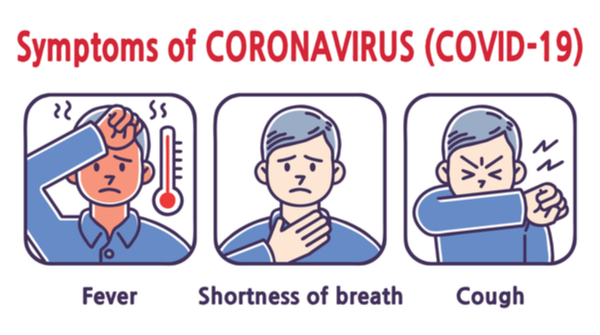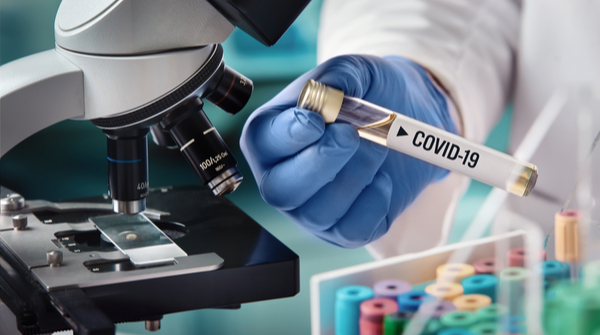The recent coronavirus outbreak in Wuhan, China, has created perplex worldwide. While the news across covers the outbreak and death toll due to the same, even scientists are not able to identify the cause for this outbreak. But what is coronavirus? What are the coronavirus symptoms? How is it spreading? Is there a cure? What are the treatment options available?
Read on to know everything about this virus which has created havoc worldwide.
What is Coronavirus?
As the name suggests, coronavirus is a kind of common virus that generally affects the respiratory tract of animals, especially mammals, including humans. It causes infection in your nose, sinuses, and upper throat. Amongst the types of coronavirus, only a few are considered to be dangerous.
Coronavirus was first identified in the 1960s; however, no one could identify the root of where it came from. The name corona comes due to the shape of the virus, which is a crown. There are certain types in this family that can affect both humans and animals.
Coronavirus is spreading the same way, just like any other cold-causing virus would do. This includes infected people openly sneezing and coughing, touching an infected person’s hands or face, or even touching places or things where the infected person must have touched.
It is surprising to state that everyone gets a coronavirus infection once in their lifetime, most likely during the early stages of life.
Coronavirus Symptoms: What are the signs?

The symptoms of coronavirus are cold or flu-like, which usually set in from 2 to 4 days and are mild in nature. These include:
- Sneezing
- Running nose
- Coughing
- Fatigue
- Fever (in certain cases)
- Sore throat
- Exacerbated asthma
Types of Coronavirus
The types of coronavirus depend on their severity and how far they can spread. As of now, there are six types that have been identified:
- 229E
- NL63
- OC43
- HKU1
- MERS-CoV
- SARS-CoV
The initial four are the most common ones and are not severe. However, the latter two, including MERS-CoV, which causes Middle East Respiratory Syndrome, and SARS-CoV, which causes a severe acute respiratory syndrome, are extremely dangerous.
Coronavirus and SARS
SARS is known as Severe Acute Respiratory Syndrome, which is caused by SARS-CoV. While it is a life-threatening form of pneumonia, it affects the upper and lower tract and also causes gastroenteritis. The symptoms of SARS are somewhat similar to other forms of coronavirus but develop over the course of the week or start with a fever in some instances. In the early stages, one can identify the symptoms as:
- Dry coughing
- Chills
- Diarrhea
- Breathlessness
- Aches
In the later stages of SARS, pneumonia may develop an acute lung infection leading to lung, heart, or liver failure.
Transmission of Coronavirus: Causes
Recent studies have shown that coronavirus can be spread from human to human. In fact, just like in the cases of the common cold, droplets from sneezing and coughing apart from close human contact are likely to transmit the SARS virus. The respiratory droplets from sneezing/coughing are absorbed into the body via the mucous membranes of the nose, eyes, and mouth.
This can happen via:
- Sharing utensils with an infected
- Hugging and kissing
- Human contact/interaction within 3 feet of distance
- Touching someone directly
Moreover, an infected person can spread the virus by simply leaving droplets on everyday things such as handles, doorbells, and telephones. The virus present in the environment stays alive for several days.
Tests to Detect the Virus

Some tests can help you identify SARS-CoV. One of the ways to detect the virus is via Reverse transcription-polymerase chain reaction (RT-PCR) testing. This test can help detect the virus in the blood, stool, and nasal secretions.
Another way is through Serologic testing, which can detect SARS-CoV antibodies in the blood. If someone is diagnosed with the presence of antibodies, they are also likely to have the infection. Doctors may also use a viral culture. This involves putting a body tissue or fluid into a container with some cells and seeing if the virus can grow. If there is growth, the cells will change.
However, these tests may not provide accurate results if used in the early stage of infection. Another common way to detect is to understand if a person has spent time with people who developed the disease or visited the places where the disease was present. In fact, unexplained pneumonia can also be a way to detect if there is an outbreak already.
Read More: COVID-19: 7 Useful Tips to Manage your Mental Health while Social Distancing
Prevention & Treatment for Coronavirus
As of now, scientists have not been able to find a cure or vaccine for coronavirus. However, a few common steps can be taken to help prevent infection. These include:
- Frequent handwashing; wash your hands with soap and warm water or with an alcohol-based hand sanitizer.
- Avoid touching your eyes, nose, and mouth with fingers after going to a public place.
- Avoid close contact with people who might be infected.
- Cover your mouth while sneezing or coughing and encourage others to do the same.
The treatment options suggested by doctors to treat a coronavirus infection is similar to treating a cold, which includes:
- Get plenty of rest
- Drink plenty of fluids
- Visit a doctor for online medicine to treat a sore throat and fever. Alternatively, you can use a humidifier or a steamy shower.
If you get sick, do not take it lightly and treat your symptoms. Visit a doctor if need be and take proper medications. Stay safe, stay healthy!
Download the BeatO App to connect online with certified doctors and health coaches.





